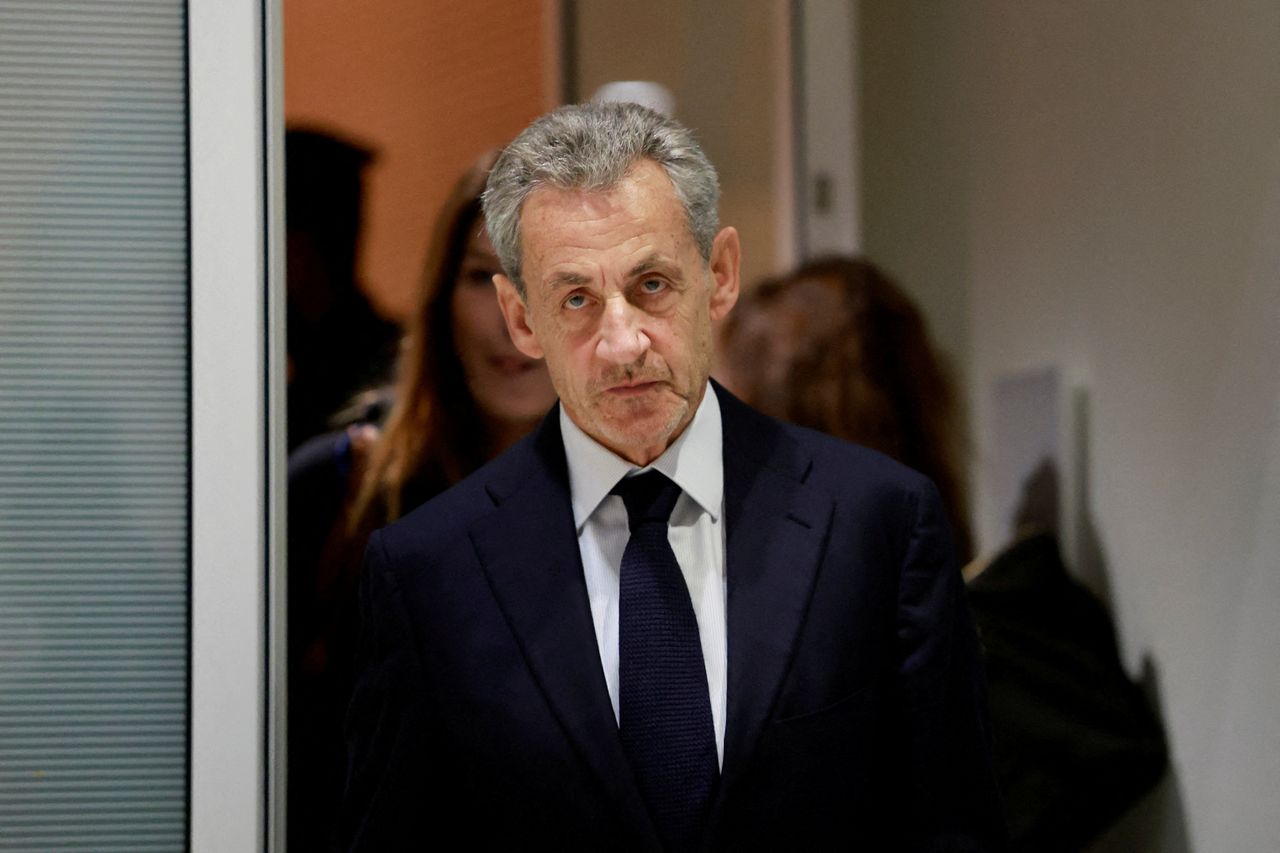 PARIS (Reuters) — Former French president Nicolas Sarkozy was to be put behind bars Tuesday, starting a five-year sentence for conspiring to raise campaign funds from Libya, in a stunning downfall for a leader once known for his swagger and taste for the global spotlight.
PARIS (Reuters) — Former French president Nicolas Sarkozy was to be put behind bars Tuesday, starting a five-year sentence for conspiring to raise campaign funds from Libya, in a stunning downfall for a leader once known for his swagger and taste for the global spotlight.
Sarkozy, who was the conservative president of France between 2007 and 2012, will become the first former French leader to be jailed since Nazi collaborator Marshal Philippe Petain after World War Two.
“I’m not afraid of prison. I’ll keep my head held high, including at the prison gates,” Sarkozy told La Tribune Dimanche newspaper ahead of his incarceration.
The conviction caps years of legal battles over allegations that his 2007 campaign took millions in cash from Libyan leader Muammar Gaddafi, who was later overthrown and killed during the Arab Spring uprisings.
While Sarkozy was found guilty of conspiring with close aides to orchestrate the scheme, he was acquitted of personally receiving or using the funds.
He has consistently denied wrongdoing and called the case politically motivated, saying judges were seeking to humiliate him. He has appealed, but the nature of his sentence means he must go to jail as his appeal process plays out.
The former president has already been convicted in a separate corruption case, in which he was found guilty of trying to obtain confidential information from a judge in return for career favours, serving that sentence by wearing an electronic tag around the ankle.
At La Sante prison in Paris, which in the past has housed leftist militant Carlos the Jackal and Panamanian leader Manuel Noriega, Sarkozy will likely be held in the isolation unit, where inmates are housed in single cells and kept apart during outdoor activities for security reasons.
Conditions are similar to the rest of the prison: cells measure 9 to 12 square meters and, following renovations, now include private showers.
Sarkozy will have access to a television — for a monthly fee of 14 euros ($16) — and a landline telephone.
Sarkozy told Le Figaro he would take three books for his first week behind bars, including Alexandre Dumas’ “The Count of Monte Cristo” — the story of a man unjustly imprisoned who plots his revenge against those who betrayed him.
The decision to jail a former president has sparked outrage among Sarkozy’s political allies and the far right.
However, the ruling reflects a shift in France’s approach to white-collar crime, following reforms introduced under a previous Socialist government. In the 1990s and 2000s, many convicted politicians avoided prison altogether.
To counter perceptions of impunity, French judges are increasingly issuing “provisional execution” orders — requiring sentences to begin immediately, even as appeals are pending — legal experts and politicians told Reuters.
Far-right leader Marine Le Pen has been banned from running for office under the same “provisional execution” provision, pending an appeal early next year.
According to an Oct. 1 Elabe poll for BFM TV, 58 percent of French respondents believe the verdict was impartial, and 61 percent support the decision to send Sarkozy to jail without waiting for the appeal.
President Emmanuel Macron, who had warm relations with Sarkozy and his wife Carla Bruni, said Monday he had met Sarkozy ahead of his incarceration.
- Why veteran pansori singer Lee Ja-ram takes on one-woman battle in ‘Prima Facie’
- Father and son asylum-seekers live in airport holding room for 4 months
- HD Hyundai to showcase next-gen shipbuilding tech at APEC summit
- Free performances across Gyeongju celebrate vibrant Korean traditions ahead of APEC
- Blackpink’s Jisoo scores 1st solo entry on Billboard’s Hot 100










Most Commented